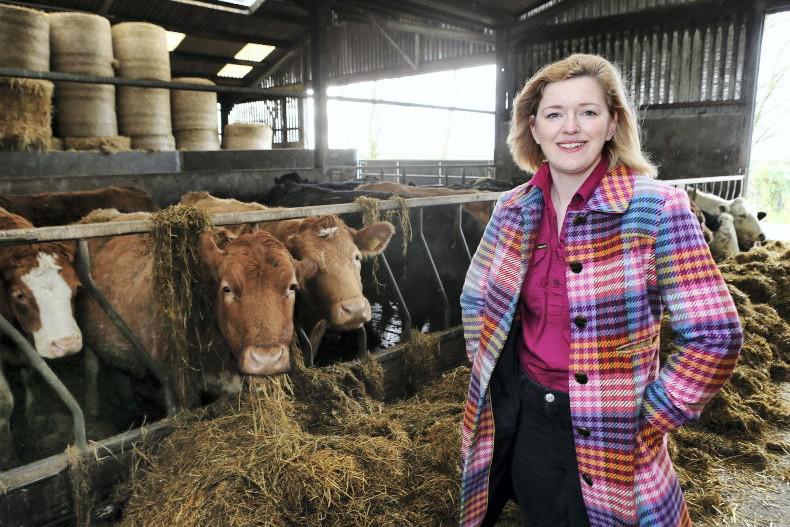Many of us remember the Santa requests for the early ones – the Gameboys, Commodore 60s and Sega Mega Drives, the excitement around the Super Mario Brothers and Sonic the Hedgehog. It was a new screen world, pre-internet and one step up from limited TV channel land in many homes and children loved it. While Gameboys might have been confiscated at bedtime, the other systems were usually in the living room with the telly and only used occasionally.
The world has moved on quite a bit since then to Nintendos and PlayStations and X-Boxes of all sorts and screens in bedrooms and multiplayer online sessions. While video gaming is still an enjoyable hobby for many, the constantly available world of video gaming has become an issue in some homes.
Moderation is key
Stella O’Malley is a psychotherapist and author based in Birr, Co Offaly, and is well aware of both sides of the gaming coin.
“Gaming can be a healthy pursuit depending on how the person/teenager approaches it,” she says. “When it has to be turned off and they can take that, then it’s fine because gaming can be a very pleasant experience. Boys especially are using it to socialise with each other from their bedrooms having chatted about it during the day. It can be quite pleasant and interactive and definitely a positive aspect of teenage boys’ lives.”
A lot of dads and parents find it difficult to connect with their teenager and gaming can be a way of doing that
Playing video games can be a bonding activity between sons and dads also, she believes.
“A lot of dads and parents find it difficult to connect with their teenager and gaming can be a way of doing that. Once it’s not too much, it’s fine. It’s leisure time. It’s like watching TV, if you’re doing a little bit of it to unwind, that’s great.”
The pros of playing video games are generally listed as helping with hand-eye co-ordination and problem solving. A University of Rochester study for instance showed that action games train the player’s brain to make faster decisions without losing accuracy.
Players also develop strategy and anticipation skills, keeping long-term goals in sight while solving short-term problems, fans say.
Armies use video games, we are told, to develop situational awareness, ie to keep soldiers mindful of sudden situational changes in the game and adapt accordingly.
Extreme reactions
That’s the positive side but, as with most things, moderation is key.
“You know there is something wrong when your child is in his room too much, missing out on life,” Stella says. “And if his reaction is extreme when you turn the game off – that is a real sign that things have got out of hand.”
She believes that about 10% of teenagers develop this problem and this realisation has led to the World Health Organisation (WHO) introducing a new classification of mental health condition called “Gaming Disorder” last year – something that Stella says psychotherapists all over the world have welcomed.
The WHO classified gaming disorder as a mental health condition where an individual prioritises games over other life activities for more than 12 months with negative consequences.
Parents – follow your gut feeling
“It’s not about the average gamer who enjoys the activity sensibly,” she says. “Most of us can do it, but some people have that compulsive aspect to their personality and it comes on quite quickly and it’s quite definite.”
Stella believes that parents know instinctively which one of their children has a problem with technology.
“I say check your tummy. If you’ve that bad feeling in the pit of your stomach you know deep down that there is a problem. The teenager will say they need it, they have to have it and are absolutely furious when it’s taken away from them. It’s complete compulsion.”
The problem now is that there are ‘eternal’ games. There’s no stopping. Minecraft in particular doesn’t let you pause it and there is no end
She compares the situation now with the past.
“The problem now is that there are ‘eternal’ games. There’s no stopping. Minecraft in particular doesn’t let you pause it and there is no end. It’s been set up so there is no end, you’ll trying to get to the next level. Gamers often don’t want to take time off to go to the toilet or eat.”
She mentions “hikikomori”, the term used in Japan to describe a person’s complete social withdrawal from real life into a virtual life. Out of a population of 127 million there are over 2 million at or near that stage.
Stella gets lots of calls from parents who are very worried about how their teenagers or young adults are isolating themselves by gaming too much.
‘Tech’ as junk food
She says we should see gaming as “junk tech” and regard it as we should regard junk food.
“Just as junk food can be nice occasionally and we have to watch the amount of it we eat, we have to be mindful of not gaming too much also. It’s about balance.”
Children or teenagers who have developed a serious problem with gaming can act in two ways – either be emotionally over-reactive or shut down emotionally, the author says.
In the first case there can be a “nervy jumpiness” about them.
Parents say their child is so laid back he or she is nearly horizontal and I ask are they laid back or do they shut down – there is a big, big difference
“Their nervous system is literally alive. They are over-sensitised so it makes them very jumpy and very quick to have a fight or argument.”
Other children become completely shut down in their emotions if they game too much.
“Parents say their child is so laid back he or she is nearly horizontal and I ask are they laid back or do they shut down – there is a big, big difference.”
The author of Cotton Wool Kids, Bully-Proof Kids and Fragile points out that this emotional paralysis can lead to relationship issues in the future and that a shut-down person is very disconnected.
“They find it very hard to get pleasure out of life. Children should enjoy their childhood, not be shut down and listless.”
Be cautious of silence
Teenagers being quiet upstairs is not necessarily a good thing, she says.
“Parents are thinking they are getting an hour’s peace from their highly-reactive teenager when they are gaming but I ask them, ‘Are you though?’ It’s an awful choice that parents have to make. They can think, ‘I can tell him to turn it off and face a row’ or, ‘I can avoid a row by just letting him have his games’. The reality is it’s almost like thinking he is up there drinking vodka in his room and I’m pretending it’s not happening and he’ll be fine.”
Stella considers many parents to be irresponsible around tech use and wants to emphasise that parents shouldn’t allow their children to have anything to do with tech that is age inappropriate.
“It introduces them to a world that isn’t appropriate for their brains. Not only is this exposure bad for them they also become very physically reactive.”
Connection to porn
There is another downside that she sees connected with young boys gaming – that it leads them to porn.
“It’s definitely an issue. I find a lot of those I see take a while before they tell me that they are worried about their use of porn. Science is bearing out that there is a connection between gaming and porn and a lot of porn has become quite violent. Seventy per cent is violent to women and an awful lot of gaming is violent too. It’s like the merging of the two activities. In a lot of the gaming, images of the women are very sexualised. It’s an issue that needs to be addressed.”
Counselling
Stella sees teenagers when gaming has become a real problem, but counselling someone out of compulsive gaming can take a lot of time. It can only begin properly with the teenager admitting he has a problem.
“When they can agree that they are using technology too much then that’s progress.”
In terms of strategy to stop the addiction she advises enticing teenagers out of the house to do activities that they enjoy.
“I find the best thing to do is to try to lure them out with activities that they once liked, maybe it’s soccer or something they have never tried like kayaking or mountain climbing or abseiling.
Asking a boy to sit down and read a book just isn’t going to work
“Very often for teenage boys it’s something to do with thrills. The male teenage brain really, really does like risk. For thousands of years boys of their age have been geared up to go to war because of that desire for risk and they say that’s why a lot of teenage boys like speeding in cars.
"They like challenge and the only challenge now that they can get is the manufactured risk they’re getting in gaming. If they can find it in kayaking or surfing or rock climbing or horse riding instead it will take them away from too much gaming. Asking a boy to sit down and read a book just isn’t going to work.”
“The difference between real life and online life is like the difference between falling in love with someone and being very fond of someone. It’s hard to describe but immediately recognisable when it is experienced.”
A research professor at the Oxford Internet Institute thinks the WHO classification of gaming addiction in its disease classification manual is premature, if well-meaning. Another Bath Spa University scientist says there isn’t a lot of evidence that gaming is either good or bad.
Dr Pete Etchells said that he feared a hobby was being pathologised, saying that there are other addictions like tanning and exercise but that these haven’t been focused on as much.
Other scientists have said that the problem can be with parents not being able to set boundaries.
“It’s basic parenting,” they say, pointing out that there is some evidence that playing games for short periods of time can be beneficial. Therapists worldwide say that the games are designed to be addictive, however, but also that in treating the issue they would always look at the pattern of behaviour in the family as a whole.








SHARING OPTIONS